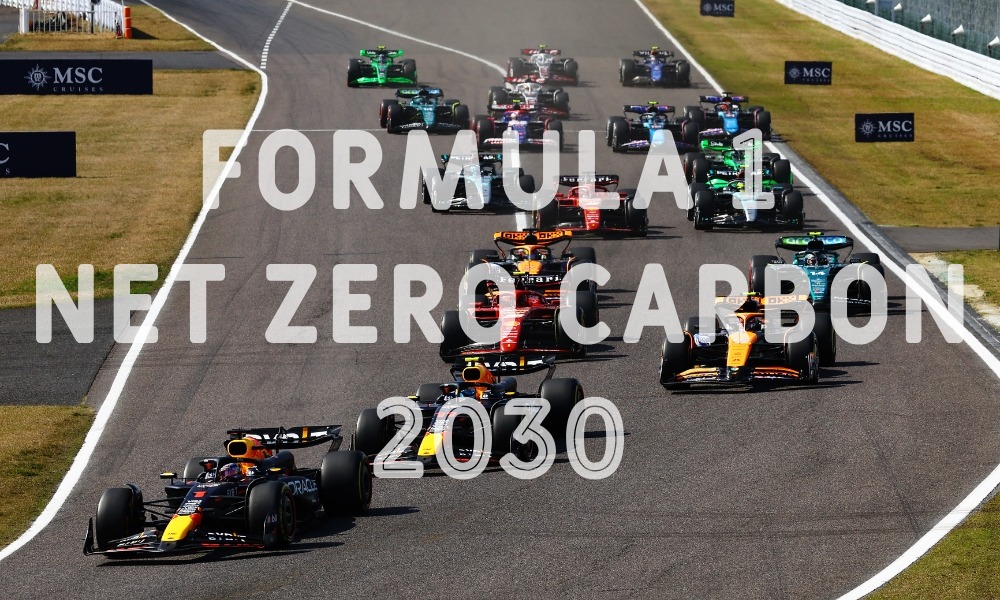In its pursuit of the Net Zero Carbon 2030 target, Formula 1 has collaborated with its teams, race promoters, logistic service providers, and key suppliers to make progress, despite the rise in the number of races from 21 to 23 between the 2018 and 2022 seasons.
Formula 1 Net Zero Carbon by 2030 initiative is aimed at achieving a 50% reduction in absolute carbon emissions compared to its 2018 baseline. This reduction encompasses not only the energy consumption at F1’s facilities and race events but also the travel and logistics involved in between. To address the remaining emissions, F1 is committed to implementing a credible offset strategy.
Although comprehensive data for 2023 is not yet available, F1’s latest impact report highlights a significant 13% reduction in emissions between 2018 and 2022. The report also outlines the series’ latest initiatives that contribute to achieving this ambitious goal.
In the previous year’s report, which did not include 2022, F1 claimed a reduction of 17%. It is worth noting that the 2022 season featured an additional race compared to 2021.
Furthermore, while the calendar for the upcoming 2024 season will consist of a record-breaking 24 grands prix, the logistical aspect of hosting these races is expected to account for only 49% of F1’s overall carbon footprint. This is a notable improvement from 2022 when travel and logistics constituted 72% of the baseline footprint.
F1 is actively implementing various initiatives to mitigate the environmental impact of its expansion. For instance, its logistics partner DHL has transitioned to a fleet of 18 trucks powered by drop-in biofuel for the nine European races, following the adoption of more efficient Boeing 777F freighter jets.
Additionally, restructuring the overseas calendar is being pursued to streamline logistics further. One such change includes moving the Japanese Grand Prix to a new spring date, which optimizes the flow of freight from Australia and China to subsequent rounds.
Ellen Jones, F1’s Head of Energy, Sustainability, and Governance, emphasizes the importance of reducing distances in the calendar to minimize the carbon footprint. This, coupled with technological innovations like biofuels, sustainable aviation fuel, and efficient trucks, contributes to F1’s commitment to sustainability and environmental responsibility.
Formula 1 has developed new strategies to minimize the amount of freight and staff needed at events, while enhancing its remote capabilities.
Jones emphasized the importance of transitioning to renewable energy, both domestically and internationally, as it has led to a significant 13% reduction in emissions. The 2022 statistics show a remarkable 56% decrease in emissions from factories and facilities. Looking ahead to 2023, the shift towards renewable energy beyond the UK is becoming more evident.
During the previous year, F1 conducted a trial using renewable power generators fueled by biofuel and solar energy at the Austrian Grand Prix. This initiative resulted in a 90% reduction in paddock emissions. The positive outcomes from this trial will pave the way for more races to be powered in a similar eco-friendly manner in the future.

